Student Blog
Admissions
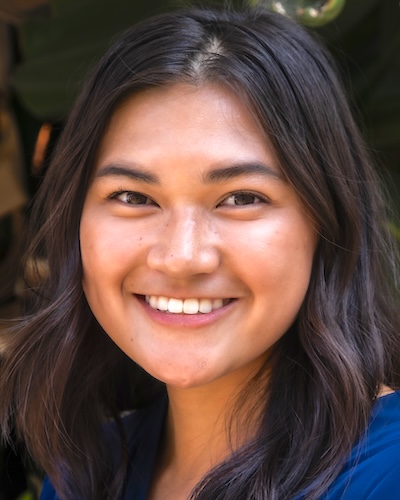
Grad Application . . . Let’s Talk About It ⟩
December 18, 2024, by Cara
Admissions Life Hacks
Since deciding to pursue a career in OT, I knew that graduate school would be an eventual part of my academic journey. I’ve recently finished the graduate school application process and while it’s fresh in my mind, I have some tips to share!
1. Choosing Programs — What Do You Want Out of It?
When selecting a program, it’s important to consider what you want to gain from the experience. Each program is unique in its own way, so here are some factors I considered when choosing the right fit for me:
- Curriculum
Does the program offer a good balance between theory and clinical work? Think about whether you want to understand more of the theoretical foundations of what you’re doing, or if you’re someone who prefers to jump into clinical work and learn as you go. - Opportunities
What resources does the program offer? Look into opportunities beyond lab and fieldwork, such as community clinics where you can gain experience early on. Additionally, research the fieldwork placements — are they local or global? - Diversity
As OT helps people from various backgrounds, consider a program that values diversity. Research how diverse the student body, faculty, and the community outreach are. Exposure to different perspectives in your cohort helps you grow your empathy and awareness. And with the guidance of faculty across diverse subjects, you’ll learn the necessary skills to help people holistically.
2. Observation / Volunteer Experience
Some programs may require 40–80 hours of relevant experience, which may seem daunting, but it’s totally doable! I gained mine by networking through family friends and reaching out to clinics I found through Google. Even if experience is optional, I strongly encourage you to still do it. Such experiences helped me see all the ways I can make a difference as an OT, discovering the settings and specialties that resonated most with me, and reaffirmed my passion for the field. If you’re unsure where to start, check out our list of volunteer and observation opportunities across the US and internationally.
3. Letters of Recommendation
Most OT programs require three letters of recommendation from a professor, an OT you’ve shadowed or interned with, and an employer. It’s important to be intentional about who you ask and what they can add to your application. For example, my professor emphasized my work ethic, compassion, and introspection. An OT I shadowed focused on my time alongside them and how I was as their shadow. My employer commented on my creativity, communication, dependability, and teamwork skills, drawing from my role as a Student Ambassador. In short, don’t select recommenders solely based on their titles — consider how each can showcase different aspects of your strengths to make yourself a more well-rounded applicant.
4. Personal Statement
Writing a personal statement is undeniably one of the most challenging yet vital parts of the application process. While it’s easy to think you need to fit an “ideal student mold”, remember that programs value individuality. Unlike most applicants, I never had a direct experience with OT that inspired me to pursue the career. Rather, my “aha” moment was from my former job as an elementary after-school aide. While not directly related to OT, I was able to reflect on this experience to demonstrate essential OT principles such as empathy, problem-solving, and supporting others in overcoming challenges. Often, the experiences that seem trivial or we initially take for granted teach us the most about who we are and what we’re meant to do. So, don’t underestimate those unique experiences — they may provide the most meaningful insights into what you can offer to the field.
5. Interview
Interviews are a double-edged sword. I was excited when I got one, thinking, “Yes, I’ve made it to the next round!” But then the anxiety kicked in – What kind of questions would they ask? What if I blanked out completely? What if I say the wrong thing? Here’s how I overcame the jitters:
- Prepare
Anticipate common interview questions, including why you chose OT, why you chose that specific program, and experiences about teamwork and problem-solving. Some programs may even have you role-play as an OT to assess your empathy and communication skills. - Mock interviews
As they say, “practice makes perfect!” I suggest doing mock interviews with those experienced in the process, like professors or TAs. For me, I prepared with my dad, thanks to his extensive experience on hiring committees. I admit that I cried three times out of nerves (haha!). Nevertheless, by the day of the actual interview, I made it through without any tears. Also, some programs provide the opportunity to virtually meet with the admissions director to answer any questions you may have. If offered, I suggest taking it, as it helped me get a better sense of what the school was looking for and allowed the program to familiarize themselves with me. - Ask questions
As my dad advised me, “Don’t stay silent — you might miss your shot.” While it may sound blunt, speaking up by asking questions shows you’re invested in the program while helping you determine if it’s the right fit. Most interviews include a Q&A with current graduate students, giving you a chance to learn candidly about the program’s strengths and weaknesses. Ask about what’s important to you, whether it’s student-student support, student-faculty relationships, fieldwork, or capstone projects. Remember, there’s no such thing as a stupid question! - Relax
During the actual interview, remember that the interviewer is there to get to know you, not to judge you. It’s easy to get caught up in thoughts like, Do I have enough experience? or This program is so prestigious — am I good enough? But, remember you earned the chance to be there, and that says a lot about you having something valuable to offer. Take a deep breath and know that you can do this, because you can.
The application process can be daunting, and perfectionism often makes it feel even more stressful. I overthought a lot, but I had to remind myself that getting through it is better than perfect, and that everything will fall into place as it’s meant to. Even when it feels uncertain, remember, it’s not about where you are now, but who you’re becoming along the way. I hope these tips help you feel more prepared and confident as you approach application season. If you ever want to talk more about the process, feel free to reach out. Good luck!
⋯
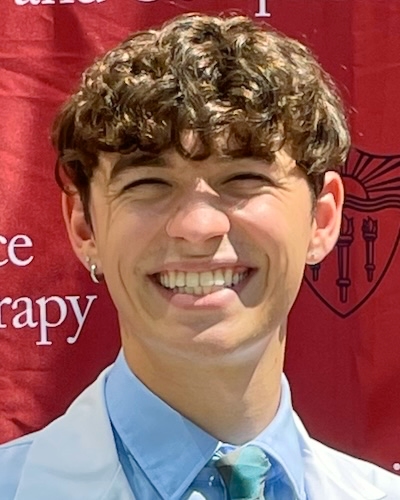
A Story You Won’t Forget ⟩
November 8, 2024, by Mason
Admissions
College admissions can be stressful, in fact when I think back about my high school years I can say without a doubt that the college search and application process was one of my most stressful moments. One of the hardest parts about it, at least for me, was the sheer number of people telling me different things to focus my energy and attention towards. I had my parents whom I desperately wanted to make proud, my older sister who was already succeeding in college, high school ‘college counselors’ who thought I shouldn’t tunnel vision my aspirations solely on occupational therapy, and of course all of those supposed “admission experts” on youtube describing ground breaking news on how to get into a top school. Everyone always had something to say, some magical advice, and having to sift through all of it was exhausting. College applications often force you to define yourself in a few short pages, and I for one was often left feeling inadequate putting my whole life down on a page.
A little about me, I had the privilege of earning a paid work study job at USC’s Office of Admissions. There I served as a student ambassador and tour guide for all 4 years of my undergraduate education. There were many great benefits and takeaways from my experience in the position, but for the sake of staying on topic I will stick to what’s relevant. Across my years in the role I was able to work directly under several fantastic admissions counselors who not only acted as my bosses and mentors, but also openly shared with me an honest window into the college admissions process at USC. My supervisors were some of a large number of USC counselors who directly read applications and played a key role in the admissions process. I cannot speak for other universities, but I think the most interesting thing I realized throughout my time learning from them is how human the college application process really is. When you are in high school and applying to these big trailblazing universities it’s easy to forget that at the end of the day there is a human being reading your application. A real person who feels, empathizes, and hopes to connect with each and every student they learn about. When any of my co-workers or myself would ask our supervisors what is the best advice we should give to prospective USC students on an application or college essay, they would always tell us the same thing:
Tell us a story we won’t forget.
So what is my magical advice you might ask? What secret golden ticket am I offering to you today. The best advice I can give to anyone about applying to USC or any college for that matter, is to be your most honest and authentic self. It’s so easy to get swept up in the narrative of trying to make yourself into a person that college’s “want” to see. Whether it be through the extracurriculars you engage in, the classes you take, or the essay you use to paint a picture of yourself, let your true narrative and story guide your application. If you take the time to create something that reflects the beauty and passion of your unique human experience I guarantee you it will stick with a person better than trying to model some unattainable paradigm.
My favorite thing about occupational therapy is that each and every patient you see has a different story, a different meaning that they derive from the activities that fill their life. Let your meaning shine through your work, and always remember that there is never just one path to your future goals. If the first path you choose closes, take a deep breath and head down the next one that comes your way.
That’s all for now, and Fight On!
⋯
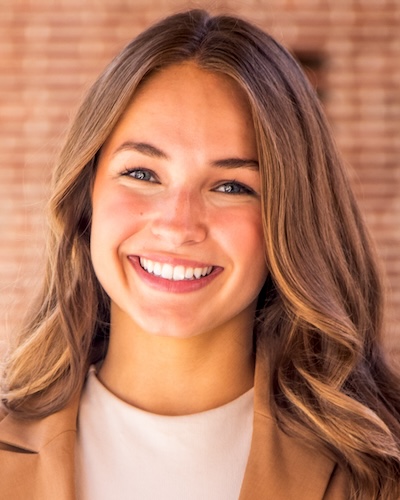
How to Find Scholarships (yes, you qualify!) ⟩
November 5, 2024, by Avery
Admissions Life Hacks School/Life Balance
Let’s be honest — education is expensive, especially at USC. That first time you open your financial aid report can be scary and overwhelming. The weight of potential debt and student loans is daunting, and for many of us, staying in school requires tough sacrifices and working multiple jobs just to make ends meet.
One thing that many students don’t realize however, is just how much free money is available to them in the form of scholarships! I’ve heard it all:
“Oh, I don’t think there’s a chance I would actually win the scholarship.”
“I didn’t realize that I qualified!”
“Wait, I didn’t know this many scholarships were out there!”
“I don’t want to take the time to apply when I could be doing other things or just working a job instead.”
In reality, there are numerous independent organizations that WANT to give you their money so that you can pursue your education. Sometimes, it just takes a little digging to get there! I’ll be honest, taking the time to write the essays, figure out the deadlines, and get letters of recommendation is time consuming. This can feel overwhelming and exhausting, especially with the constant demands of schoolwork as a full-time student. However, at the end of the day, the rate of return on these awards is HIGH. Let’s say you spent 3 hours applying for a $500 scholarship. That equates to earning over $160 an hour. Now imagine if that is a $1,000 application? $5,000? It quickly begins to feel like the time applying for scholarships is being much smarter spent than working a few extra hours at a minimum wage job.
So, where to start? I like to begin by researching scholarship opportunities specific to the area where I am from. While many of these local scholarships are only available for high school seniors, I was really surprised to find out my freshman year that quite a few of them have money available for those already in college as well. These awards are great as they are designated only to a specific area or field, meaning less people can apply = you have a better chance of receiving the money.
Now let’s look towards USC specifically. To begin, when applying to USC (undergrad or OT school), be sure to hit that November 1st EA deadline so that you can be considered for the large merit-based scholarships that are available.
The Chan website has links to resources of external scholarships. The list is long, which means there have to be at least a few you qualify for. My advice is to open a Google Spreadsheet, make columns to label the due date, amount, name of award, link, and basic things needed to apply (essay, letter of rec, transcript, etc). Then, go through every award and add any to your spreadsheet that you meet the criteria to apply to. This will keep you organized and will help to not let any deadlines sneak up on you.
![]()
Here is an example of what my scholarship tracker spreadsheet looks like
Chan has a page with resources for their internal scholarships. Add these to your spreadsheet as well.
USC also has several scholarships for those engaged in unpaid research. Check out Dornsife’s SOAR-SURF-SHURE scholarships, as well as Chan’s Occupational Therapy Student Research Fund. These can be incredible opportunities to learn and be involved in something that interests you academically, add to your professional resume, and get ‘paid’ simultaneously.
Next, put together a list of companies you have ties to. Think about places you work, shop, where your family and friends work, where you do your banking, non-profits you volunteer at, etc. There’s a good chance one of these organizations has an annual scholarship award.
Finally, many scholarship search engines exist such as scholarships.com and fastweb.com, where you can filter your search based on your area of study and demographics.
Keep track of those deadlines, and happy applying!
⋯
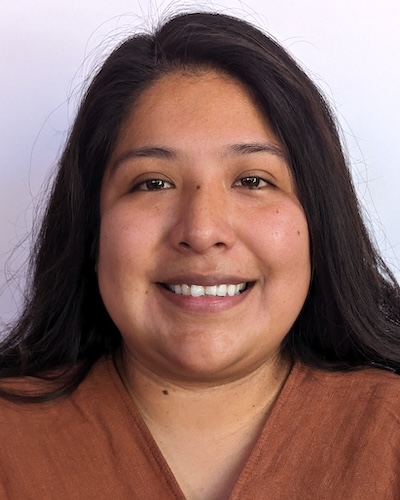
From Rejection to Redemption: My Second Attempt ⟩
August 15, 2024, by Patricia
Admissions
Getting rejected the first time creates some type of feeling. For me it was sadness, questioning what went wrong, and thinking about what to do differently applying a second time around. Here are some of the areas I revisited and hope it helps you if you are applying a second time:
Meet with an Admissions Representative:
Set up an appointment to meet with an admissions representative, it truly makes a difference. Ask them questions about your application like, “what can I do to strengthen my application?” I had the opportunity to know what disqualified my application, and that was that one of my prerequisites was passed the seven years when I applied. If you have a question about your prerequisites or want to request a waiver you can do so by visiting this link: https://chan.usc.edu/education/entry-level-otd/admissions/prerequisite-inquiry.
Letters of Recommendation:
Asking for a letter of recommendation from people that don’t know about occupational therapy can be a little challenging. I composed and provided a brief written description of “What is occupational therapy (OT)?”, a list of attributes an occupational therapist has, and why I was interested in occupational therapy to the people I was asking for letters of recommendation from. This can help the individuals writing your letters of recommendation know and learn about OT and how your skills and work experience relate to OT. Also, give them a due date and do check-ins with them as the application window comes to an end.
Personal Statement and Other Prompts:
Writing the personal statement along with the other program prompts for me was an opportunity to reflect on why I was applying for OT. It was a time of vulnerability in sharing my story and I felt nervous when I asked them to read my statements. And with that said, I do recommend asking people that you feel comfortable with to read your personal statement. Also, if you need to redo your personal statement that’s okay. I redid my personal statement three times before I felt true and confident in my written statements and this wouldn’t have happened if I didn’t share them and receive feedback. Lastly, if you don’t know where or how to start writing, I would suggest writing down all your thoughts and experiences to give you a guide on what you want to talk/write about.
These are the three areas I focused the most on when applying a second time around to OT programs. Whether this is your first or second time applying, I hope these suggestions help. If you have any questions or would like to contact me, please reach out. I wish you the best in your application process and as always, Fight On!
⋯
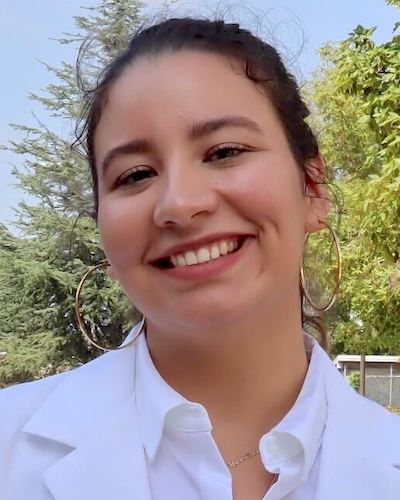
In the words of Elle Woods, “What? Like it’s Hard?” ⟩
February 15, 2024, by Natalie
Admissions First-Gen
GRADUATE SCHOOL. Sounds scary doesn’t it? Being a first-generation student, I struggled to create a mental picture of myself at undergrad, let alone at grad school — but I made it through undergrad. I had all the support from my family and friends and was raised being taught there isn’t anything that can get in my way, and that if it felt like there was, to persevere and create my own path. So that’s what I did. But what no one told me was that the application process would be even scarier.
The application process for OT school was overwhelming to me. I began researching programs and their application requirements in late 2018 but only applied in the 2021 application cycle. At the time, I noticed that almost, if not all, the schools required applications be submitted through OTCAS and also had their own program specific requirements. Some schools required applicants to submit a supplemental application or submit an application to the graduate school at their university, required additional volunteer hours, or needed supplemental forms. I can fill another 4 pages to talk more about MY specific application process adventure, but instead I want to give all of you some information and tips that I think would have been useful to know before starting the process.
- Start earlier than you expect to. In doing my research and trying to find advice on how to navigate the timeline for submitting applications, I found a really cool schedule that gave me a monthly overview of what to complete in that month in order to submit my applications with a month or two to spare. Even with the timeframe laid out for me, some of my steps took longer to complete and I found myself being happy with having more time.
- Triple check the due date. The programs I applied to required that my application be verified by the due date. OTCAS will handle the verification process for your application, but in order to ensure it gets verified in enough time to meet the deadline, you need to submit your application three weeks earlier. It is completely possible for an application to get verified within a few days, but why stress yourself out with something that is so out of your control?
- Organize the requirements for your different programs in a way that makes sense for you. Because having multiple programs with different requirements can be overwhelming, it can be super helpful to organize the requirements in a list, table, chart, etc. I made a list for myself for each program, but looking back, a Google sheet or Excel sheet would have been more fitting. Seeing all of the programs and the requirements organized but in one place can be helpful, and using the Google/Excel sheet allows you to strikethrough or highlight the completed cells.
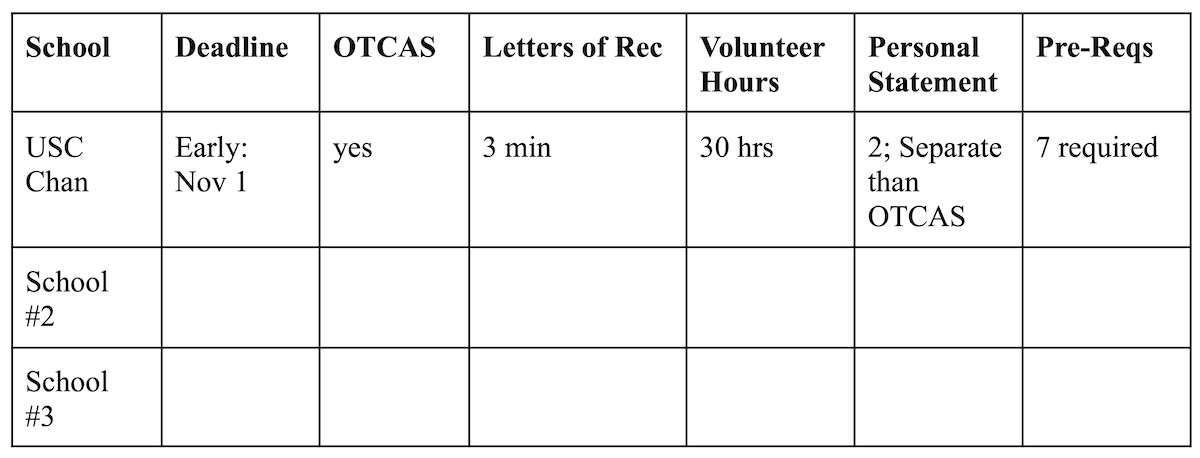
- Budget accordingly. Grad school applications can get expensive. OTCAS charges about $160 for the first program you apply to and around $70 for EACH additional program. On top of that, some schools have their own additional application fee. OTCAS does have a Fee Application Program which provides a waiver that covers the cost of the first program you apply to. (Note that these waivers are limited and come on a first come first serve basis.) Once you are accepted, many of the schools also require a deposit (not USC) to save your spot and those fees vary in price.
- Reach out to schools directly for help. It might feel a little daunting to reach out to a school to ask questions to clarify their requirements (especially if you are like me and overthink everything). Keep in mind, schools want you to apply to their programs. They want to hear from you, want to answer your questions, and want to do whatever they can to make this process easier for you. And no, they won’t be keeping track of the questions you ask or assessing you in every single interaction you have with them — if that were the case, that would be listed as an application requirement.
- Familiarize yourself with OTCAS. Most of the schools require applicants to submit their applications through the Occupational Therapy Centralized Application Service (OTCAS). Using OTCAS allows you to submit all of the requirements that overlap across the programs you plan to apply to, helps track your progress, and as I mentioned earlier, completes the verification process for you. As with anything new, it can be confusing to use without spending time to familiarize yourself with it first.
- Lean on your support system! I don’t need to tell you that your family and friends are there for you and want to see you succeed — that’s a given. But your support system is probably bigger than you realize — the OTs that you shadow, any mentors you have, they’re all there for you too and they have been through the application process before, giving them a specialized and extra relevant perspective.
- Be strategic with your personal statement. Most OT programs are working towards trying to diversify their student populations (yay!) and in doing so are looking for well rounded individuals. Sure your grades and past GPAs are important, but so are your personal statements, through which the admissions teams are getting to know YOU as a person. Furthermore, because OT is as holistic as it is, I believe there is an even greater importance in making sure your personality (and not just all your achievements) shines through your personal statement.
- Don’t underestimate yourself. To be fully transparent, I applied to USC Chan just for fun, and even worried I wouldn’t be accepted to any of my programs because of how long I had been out of school. Looking back, I can definitively say I applied to way too many programs and really should have had a bit more faith in myself. Now I can’t guarantee anything, but if you’re spending your time reading blogs like this to better prepare for the process, I bet you are an amazing candidate and will make it to where you want to be.
This is a long list of suggestions and advice, I know. I hope it helps you channel your inner ✨Elle Woods✨ throughout your application process! Please do not hesitate to reach out to me or any of my fellow ambassadors at .(JavaScript must be enabled to view this email address) if you have any other questions. Best of luck and Fight On!
⋯





